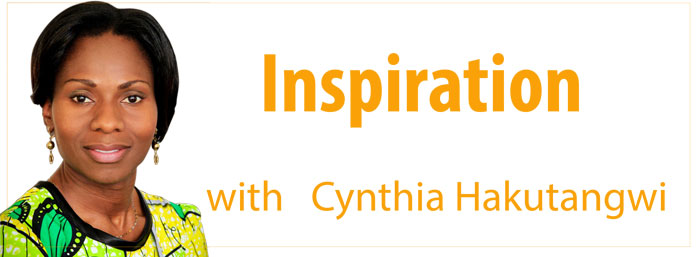
Faulty foundations in self-definition and issues of authentic personal identity can cause individuals to feel like they are in a prison.
inspiration with Cynthia C Hakutangwi
The temptation towards self-hatred is highly destructive. Self-embrace does not imply that we overlook our areas of weakness and settle for mediocrity but rather that we forgive ourselves in areas where we have failed, accept where we are and apply ourselves to be the best we can be using excellence as a standard. When we fail to value, love and embrace ourselves, it becomes very difficult for us to embrace love from others. Working with individuals in their personal development pursuits, I have recognised a common thread that haunts many individuals in spite of their race, age, tribe or allegiance and I have traced that to faulty foundations in self-definition and issues of authentic personal identity. One of the main factors that can cause individuals to feel like they are in a prison emanates from prolonged periods of living fictional lives in order to measure up to unrealistic standards set by systems, culture, practices and people around them who enslave them to fit into unreasonable moulds. It is this same cancer that has destroyed innovation and creative thinking in families, organisations and communities.
The fictional life
While many individuals may find it easier to fill the roles their family and friends expect of them, rather than becoming who they really want to be, living such a fictional life drains the critical life energy they need to pursue the things they truly value. The temptation towards self-hatred because of biological and physical attributes or others that cannot be altered is highly destructive. I have met individuals who hate absolutely everything about who they are. They hate their body, their face, their hair, their shape, their voice, the way they move, their thoughts, and literally everything they do. They glow with admiration of everyone else around them but themselves. In some instances, others can even hurt themselves and a part of them feels great because they believe they are hurting something so horrible. Self-embrace does not imply that we overlook our areas of weakness and settle for mediocrity, but rather that we forgive ourselves in areas where we have failed, accept where we are and apply ourselves to be the best we can be using excellence as a standard. When your behavioural life or your public persona is at odds with the vision, values, beliefs, desires and passions that define your authentic self, then it is possible you may be living a fictional life that has you ignoring your true gifts and talents while performing assigned or inherited roles instead.
Get out of your comfort zone
People love to be in their comfort zones. Once we find a particular way of doing things, we are very reluctant to change the way we go about it. If you review biographies of some of the world’s most successful people, you will find a number of character traits that they all have in common. Generally, these individuals have a vision — they know what they want to accomplish or what they want out of life. They set goals and they work hard to achieve them. They think positive and learn from mistakes or failures rather than using them as excuses to give up. These individuals remain focused on their objective and look for ways to overcome barriers or solve problems that would otherwise keep them from achieving what they set out to do. They are not terribly concerned about what others think of them or their ideas. Above all, they don’t quit. Self-determination is a combination of skills, knowledge, and beliefs that enable a person to engage in goal-directed, self-regulated, autonomous behaviour. An understanding of one’s strengths and limitations together with a belief in oneself as capable and effective are essential to self-determination. People who lead significantly successful lives use creative strategies to reach their goals. They look at options and make informed decisions. Successful planning requires that you know your responsibilities, strengths and challenges; set goals; work toward those goals; and use tools and resources available to you.
Leo Rosten said “I cannot believe that the purpose of life is to be happy. I think the purpose of life is to be useful, to be responsible, to be compassionate. It is, above all to matter, to count, to stand for something, to have made some difference that you lived at all.” People seeking significance for their lives put an impossible burden on themselves when they try to build their identity from their own choices and intuitions alone. We just do not have the resources to give our lives purpose. Purpose comes from God. Can you confidently say you know your life purpose?
- Chamisa under fire over US$120K donation
- Mavhunga puts DeMbare into Chibuku quarterfinals
- Pension funds bet on Cabora Bassa oilfields
- Councils defy govt fire tender directive
Keep Reading
Do you know authentic identity? Are you aware of your purpose and assignment on this earth?
Cynthia C Hakutangwi is a communications and personal development consultant, life coach, author and strategist. She is the managing consultant of Wholeness Incorporated. Her most recent published book is titled The Wealthy Diary of African Wisdom, previously published titles include Destination Wholeness – Going Beyond Brokenness, The Whole You – Vital Keys for Balanced Living and Intelligent Conversations: A Mindset Shift Towards a Developed Africa. She is co-author of Success Within Reach. E-mail: [email protected]. Facebook: Wholeness Incorporated. Website: www.wholenessinc.com











